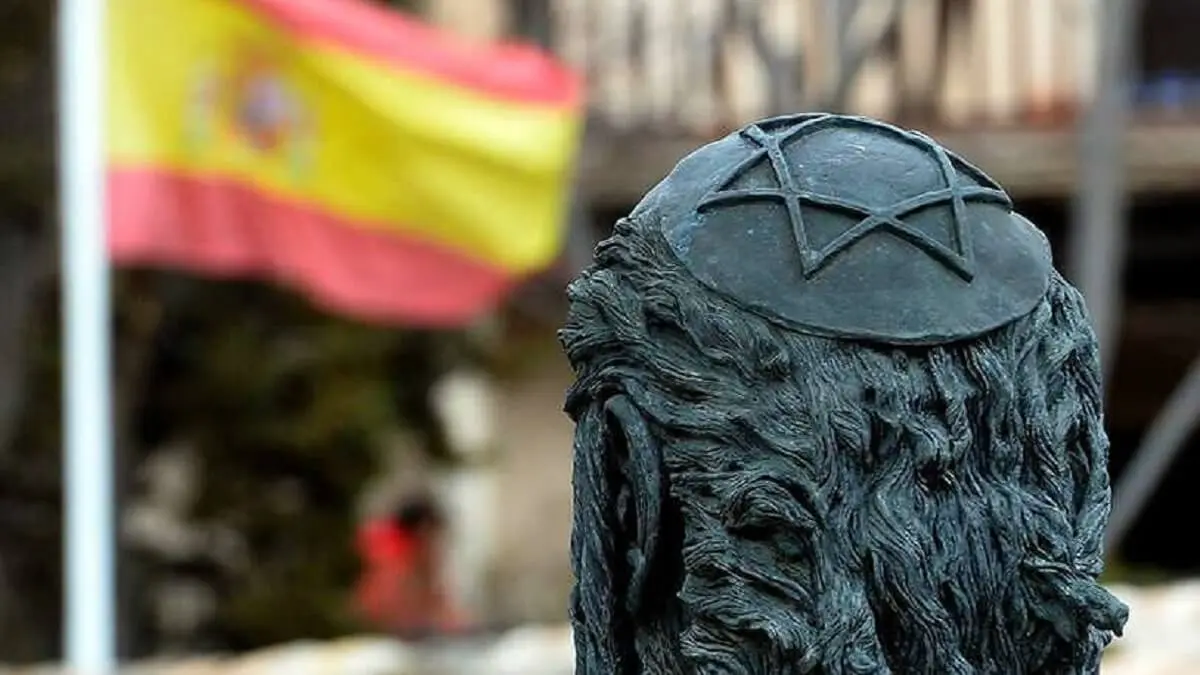More than 100 Jewish leaders speak out at European Jewish Association emergency summit

More than 100 heads of European Jewish communities and heads of pro-Israel organisations have passed a resolution at the end of an emergency conference organised by the European Jewish Association (EJA).
Aiming to formulate operational methods to combat the harassment of Jews across Europe and the rising tide of anti-Semitic hatred since 7 October, the resolution focused on three main issues: the lack of meaningful action taken by governments to date to address the unprecedented increases and existential threat, the widespread but ineffective adoption of the IHRA definition of anti-Semitism and, while criticism of a democratically elected government is normal, we note with great concern the clear and repeated anti-Israel bias of EU High Representative Josep Borrell, which has been a significant contributing factor to the ongoing anti-Semitism and vilification of the State of Israel.
The agenda of the emergency conference, all under the theme ‘fight back’, was 100% focused on solutions: for governments, law enforcement, institutional security and the ‘Jew in the street’, in the media and even in sports, thus encompassing the entirety of the current Jewish experience.
Attendees include the top leaders of Dutch Judaism, the president of the CJO, the umbrella group for Jewish communities in the Netherlands, the Chief Rabbi of the Netherlands, and the presidents of communities in Amsterdam, Rotterdam and other Dutch cities. They are joined by leaders from across Europe: France, Spain, Germany and Poland, to name but four. Among the personalities who spoke at the conference or sent messages of support were Dutch Prime Minister Mark Rutte, Israel's Foreign Minister Israel Katz, the European and Dutch Special Envoys for Combating Anti-Semitism and Racism.
Katharina von Schnurbein and Eddo Verdoner, former professional football and NBA players, personalities from Christians for Israel International and the Secretary General of the Catholic Church in the EU.
EJA president Rabbi Menachem Margolin said at the opening of the conference: ‘We are engaged in a battle for the continuity of Jewish life in Europe. Jews in traditional dress or with mezuzahs on their doors suffer relentless harassment. Jewish students suffer death threats and are excluded from university courses, while hateful slogans are freely scrawled on Jewish homes, synagogues and cemeteries. We must formulate plans to fight anti-Semitism on all fronts: politically, legally, publicly, and by increasing community and personal security. But all this may not be enough. Therefore, the State of Israel must urgently develop a practical contingency plan for the absorption of European Jewry into Israel. Unfortunately, this is no longer a hypothetical situation, but a real existential threat that European governments are not addressing or are unwilling to address.’
Joel Mergui, president of Consistoire de Paris (the largest Jewish community in Europe) and president of the EJA Jewish Leadership Council, said: ‘We thought that after the worst massacre since the Holocaust, the Jewish people, both in Israel and in the Diaspora, would have received strong long-term support, but unfortunately this has not been the case. Very soon, Israel and Jews around the world were blamed for the consequences of the horrific and barbaric war launched by Hamas against them. This grim and unjust reality is very frightening’.
Eddo Verdoner, National Coordinator for Combating Anti-Semitism (NCAB) at the Dutch Ministry of Justice, commented: ‘The main objective of our office is clear: we have to find the right application to fight anti-Semitism. New policy changes are needed to find solutions to modern problems. We have to make sure that the younger generation learns not only from the lessons of the Holocaust, but also from today's anti-Semitism’.
Stefan Hansel, Commissioner for Anti-Semitism in Hamburg, shared with the Jewish leaders that: ‘95% of German Jews come from post-Soviet republics. Most of these Jews are unaffiliated and have no voice to represent them, yet they experience the challenges found within immigrant communities, including exclusion and anti-Semitism, especially in interactions with Muslim communities. We need to rethink our institutional relationships with [Muslim] institutions. Even with overlapping issues such as kosher slaughter and circumcision, we need to draw attention to issues within Muslim institutions that are clearly anti-Semitic.
Pascal Markowitz, lawyer at the Paris Bar and member of the EJA Legal Forum, briefed the conference on the current state of the law in France: ‘French law prohibits boycotting people on the basis of their nationality. It is considered discrimination. We succeeded in suing anti-Israel activists based on this legal definition, especially against anti-Israel activists who organised boycotts in supermarkets. This law should be seen as a model that could be replicated on a pan-European scale’.
Kalman Szalai, president of the Action and Protection League, addressed the conference, stressing that: ‘The world seems to have forgotten the basic sense of right and wrong. We must prepare ourselves for the fact that the number of anti-Semitic hate crimes will continue to rise, and the number of victims will rise with it! At present, there is no European umbrella organisation that deals with providing protection, legal assistance and mental help to such victims. There are organisations that have already been obliged to provide such help in some countries, but there is a need for representation at EU level in this regard. I think it is of utmost importance that we act together, as a community. This is now our task.
In a panel dedicated to the fight against anti-Semitism in sport, Eric Rubin, Global Ambassador of the World Maccabi Union, stressed that ‘sport must be used as a tool to combat anti-Semitism. While we will not succeed in advancing the racist fringe groups of far-left neo-Nazis, our work in the Max Project (Max Nordau) uses the advocates of sport to lend their voices and raise awareness to the 60-70% of people in half the world who are not really aware of what anti-Semitism is’.
Former NBA player (NY Knicks) Michael Sweetney shared his personal experience with anti-Semitism: ‘When I saw what was happening after October 7, it hurt me, because I had a special relationship with many of the people who had gone through the sports camps that I had coached. Going to Israel was very educational for me.’ Despite the concerns of people who, like my wife, feared for me, I was surprised at how peaceful everything was. At the Western Wall, I was surprised to see Jews and Arabs having normal conversations.










